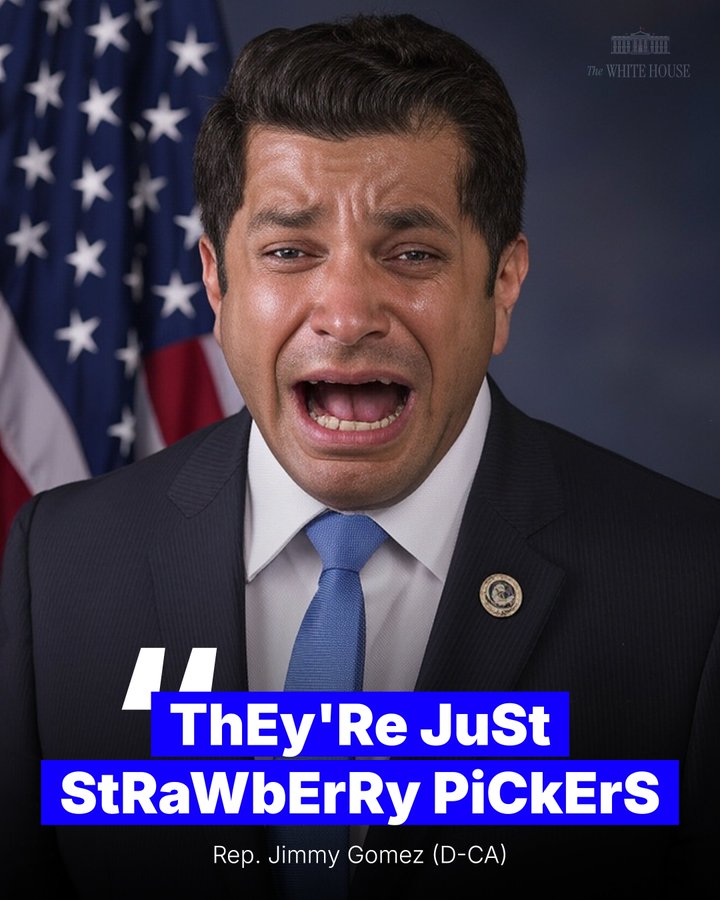27 Nov 2025 | Europe and Central Asia, News, Switzerland, Volume 54.03 Autumn 2025
This article first appeared in Volume 54, Issue 3 of our print edition of Index on Censorship, titled Truth, trust and tricksters: Free expression in the age of AI, published on 30 September 2025. Read more about the issue here.
In his book What is Free Speech? The History of a Dangerous Idea the historian Fara Dabhoiwala aims to show how free speech, once viewed as both hazardous and unnatural, was reinvented as an unalloyed good, with enormous consequences for our society today. Its origins and evolution, he argues, have less to do with the high-minded pursuit of liberty and truth, than with the self-interest of the wealthy, the greedy, and the powerful. Free speech as we know it, he writes, is a product of the pursuit of profit, of technological disruption, of racial and imperial hypocrisy, and of the contradictions involved in maintaining openness while suppressing falsehood.
I was rather sceptical about taking such a bleak view. Growing up behind the Iron Curtain, with unrelenting state and party propaganda, a right to speak and think freely has always been, to me, a foundation of free society – a vaccine against tyranny. Just like journalism, I have always viewed free speech as a way to speak truth to power, rather than the other way around; to see a variety of perspectives, develop empathy and understanding of different viewpoints, disagree civilly and thus reduce polarisation, ultimately leading to healthy societal development.
After more than 20 years in the West, and observing recent cultural trends, I have to admit that my original view was somewhat idealistic. First, as Dabhoiwala rightly points out in his book – the right to free speech has never been available to all or distributed equally. It is not possible to do justice to the free speech discussion without seeing it through the lens of power, who has a voice and who doesn’t? The fact that free speech is such a polarising issue today ultimately goes back to a single question – who controls the narrative? When Elon Musk claims to be “a free speech absolutist” defending the right to speak truth to power, he seems to forget that he himself is the power: a billionaire owner of a platform which controls the algorithms of what content its users see, and what gets prioritised. This is less about the “right to free speech” but more about rejecting any regulations that exist in the real world. Meta, which controls Facebook, Instagram and Threads, is no different.
In the current climate of cancel culture and cultural boycotts, it would be good to focus on concepts such as institutional responsibility and their duty. When cultural institutions, film and literature festivals choose to steer on the side of caution for fear of attracting protests, or courting controversy, they fail not only themselves and the artists who trust them, but the public too.
Take two Canadian film festivals which last year cancelled controversial documentaries about the wars in Ukraine and Gaza. Organisers opted to pull the films for the fear of attracting protests. They resorted to censorship, instead of prioritising the right of the public to see different perspectives and practise their own critical thinking. Institutions need to have a backbone to stand up for their programming and curatorial independence and autonomy. Films, literature, music and art are there to spark debate and conversations, not simply to follow any particular political agenda.
In 2017 in Zurich, where I live, one of the leading theatres announced an interesting and provocative experiment – The New Avant-Garde. It was supposed to be a discussion between right-wing nationalists, libertarian activists and members of the liberal democratic movement.
According to Jörg Scheller, an art historian who teaches at Zurich University of the Arts (Zhdk) and who was supposed to take part in the discussion, the idea was to discuss the meaning of terms such as “liberal,” “right”, “conservative”, and “progressive” from the perspective of the panel’s participants. Public debate is a necessity, the organisers argued, as everything else just leaves those rightly or wrongly excluded to radicalise themselves in their own filter bubbles. However, as the pressure on the institution grew from its own peers opposed to platforming right-wing voices, the theatre gave way and cancelled the discussion.
When public institutions and academia cede territory, market forces move in – sometimes with questionable motives and results. Californian start-up Jubilee Media went viral for hosting heated debates with subjects like Flat Earthers vs Scientists, with Mehdi Hasan recently featuring in one titled 1 Progressive vs 20 Far-Right Conservatives which racked up 10 million views within a month of being posted on YouTube.
The format is deeply flawed. Instead of intellectual honesty and stimulation, it is a lot of fast-paced shouting over each other with participants so entrenched in their own views that they seem to perform them for their own audiences, rather than genuinely engaging with the opponent. There is no shortage of controversial views on offer, with Hasan saying blankly at one point that he doesn’t debate fascists. Jubilee Media’s CEO Jason Y Lee, meanwhile, has argued that his vision of this civil discourse is “Disney for empathy”.
But should it really be left to market forces to provoke understanding and foster human connection?
“People hardly ever make use of freedom of thought,” Danish philosopher Søren Kierkegaard wrote in his journals. “Instead, they demand freedom of speech as a compensation for the freedom of thought which they seldom use.” Can one truly exist without the other? Free speech as an end principle in itself is a concept with little value when not accompanied by a genuine need for truth-seeking and free thinking.
It is true that tolerance of opposing views is a virtue and a necessity in any democratic society. Only by trying our ideas on each other can we figure out what to believe, what to criticise and how to progress towards the truth – both individually and collectively. Maybe instead of talking of “the right to free speech” and “censorship” as the two default settings, we should be asking ourselves how, by exercising our right to free speech, are we contributing to the societal good?
Ultimately, everyone’s intellectual freedom is society’s immune system. As Soviet dissident physicist and human rights defender Andrei Sakharov said beautifully back in 1968: “Human society needs intellectual freedom – freedom to receive and disseminate information, freedom of unbiased and fearless discussion, and freedom from the pressure of authority and prejudices.”
Such triple freedom of thought is the only guarantee against the infection of the people with mass myths which, in the hands of cunning hypocrites and demagogues, easily turns into a bloody dictatorship. This is the only guarantee that a scientific and democratic approach to politics, economics and culture will work.”
26 Nov 2025 | Israel, News, Sudan, United Arab Emirates
In what critics see as a major blow to freedom of expression, Israel has banned protests against its ally the United Arab Emirates over the latter’s sponsorship of a militia perpetrating atrocities in Sudan.
“This is a very, very grave step that lessens freedom of protest and freedom of speech,” said Oded Feller, director of the legal department at the Association for Civil Rights (ACRI) in Israel.
The ban is causing consternation among the 6,000-strong Sudanese community in Israel. Many of them lost relatives or friends at the hands of the Rapid Support Forces (RSF) militia in their home country.
In a letter from Maya Vinkler, a police legal adviser in Tel Aviv, to Feller dated 20 November and seen by Index on Censorship, Vinkler refers back to a hearing before the High Court of Justice the previous day during which judges deliberated on an ACRI petition on behalf of Sudanese community activist Anwar Suliman. The petition sought to overturn a police decision based on secret evidence that it would be a “severe threat to state security and public well-being” to hold a protest outside the UAE embassy in the Tel Aviv suburb of Herzliya.
“We wanted the Israeli public to know who is responsible for this slaughter and that it is not just the militia,” Suliman said. The UAE has close ties with Israel, establishing diplomatic relations through the US-brokered Abraham Accords in 2020 – and making its first public purchase of Israeli weaponry a year later.
The country is also a major regional player, but after the RSF’s mass killings of civilians in and around the city of El Fasher in Darfur last month its international reputation is declining. Abu Dhabi insists that it does not back the RSF, but the disclaimer is contradicted by “evidence showing the Gulf state has provided munitions, drones and other equipment to the RSF,” according to a 15 November report in the Washington Post.
The deputy head of Israel’s National Security Council and a representative of the foreign ministry attended the high court session.
“In the open part of the discussion it was stressed that there is a danger of harm to state security and harm to foreign relations,” Feller said.
Then the courtroom was cleared so that the deputy head of the National Security Council and “possibly other officials” could brief the judges in secrecy.
When Feller was allowed back into the courtroom, the judges advised him to withdraw the petition. Feller says that since he did not want a negative ruling that would set a precedent, he agreed.
After this setback, Suliman and Feller applied to the police to hold a protest in a park, with placards and speeches, focusing on candle lighting and tributes to friends and relatives killed by the RSF. “I have a friend I studied with for four years and he was killed,” said Suliman “Everyone in the community has someone who was killed there whether it’s a family member or a friend.”
He told Index the Sudanese community just wants to protest the UAE role in Sudan, just as communities in Western cities including London have done recently.
Many in the Sudanese community in Israel have been in Israel for more than 10 years and fled after earlier massacres. According to Sigal Rozen, public policy coordinator of the Tel Aviv based Hotline for Refugees and Migrants, refugees from the Darfur genocide who had fled to Egypt in 2003 began crossing into Israel because of safety fears after a mass shooting incident by Egyptian security forces outside the offices of the United Nations High Commissioner for Refugees (UNHCR) in December 2005. After people saw it was possible to survive in Israel and that they were wanted by the labour market, relatives and friends joined them, she says. This continued until 2012, when Israel erected a fence on the border. According to government figures, 300 people succeeded in crossing into Israel despite the fence during the following three years. The Tel Aviv area has the largest number of Sudanese in Israel. They work mostly in cleaning streets, gardening, and in restaurants and hotels. They do not have work permits, but as part of a 2011 court case, authorities promised they would not enforce the law against them
In previous years, the Sudanese community has been allowed to protest outside the US, UK, EU, Egyptian and Rwandan embassies in Israel. Suliman stresses they were all peaceful demonstrations.
Zakaria Bongo, an English teacher and construction worker from Darfur who has been in Israel for 14 years, is worried that his missing friend Saif Omer may have been killed by the RSF while trying to escape the militia’s capture of El-Fasher. “When the genocide happened last time, people said never again but right now never again is happening in front of the whole world,” he said. “All the world is silent about the crimes so we have to get our voices out.”
But Israel apparently does not want that to happen. The police not only rejected holding the park protest, on 20 November, they informed Feller that they will not grant permits for any protests about the renewed genocide anywhere in Israel. Vinkler claimed in a letter to Feller that during the hearing the judges “accepted the state’s position not to permit protests in the matter of the genocide in Sudan at this time throughout the country.”
Feller says this is a misrepresentation of what happened in the court and amounts to a power grab by the police. He says its decision makers could now, instead of weighing permit applications on their merits “act as the long arm of the national security council and the foreign ministry.”
Vinkler specified in her letter that it did not matter where a demonstration would be held or its “character” it would still be denied a permit. Referring to the closed-door part of the court hearing, Vinkler wrote that the ban against the protest outside the UAE embassy was based on information showing the demonstration “was liable to harm the foreign relations of the state of Israel and state security.”
Alon Liel, former director general of the Israeli foreign ministry, is sharply critical of the police ban. “When you adopt standards of dictatorships and assist dictatorships in committing crimes it shows you might be on the way to losing your democracy,” he said.
The UAE and Israeli foreign ministries did not respond to queries for this article.
24 Nov 2025 | Africa, Algeria, News
In Algeria a young poet languishes in jail threatened with the death penalty. His name is Mohamed Tadjadit and he was announced on Wednesday as our 2025 Freedom of Expression Arts Award winner.
Tadjadit, 31, was catapulted to prominence during Algeria’s Hirak (which translates in English as movement), the mass uprising that began in 2019 in opposition to Abdelaziz Bouteflika’s bid for a fifth presidential term. At the time Tadjadit was working as a fruit seller in Algiers. Then, as millions peacefully filled the streets demanding democratic change and accountability, Tadjadit stood among them, reciting poetry publicly. He shared his work in darija (Algerian Arabic). His words were raw and rooted in social reality and they became a rallying cry for a people striving for freedom. Tadjadit gained a moniker – the “poet of the Hirak” – and emerged as one of the most recognisable artists of the movement.
But the Hirak didn’t last. While the movement was initially distinguished by both its persistence and its scale, it was paused during the global pandemic and then crushed by the state: Algerian authorities embarked on a coordinated campaign of arrests and repression. And amongst those they turned on was Tadjadit. Between 2019 and 2025, he was imprisoned at least six times. Last January he was sentenced to five years; on appeal, this was reduced to one. Then, on 11 November this year, he received another five-year sentence on a new set of charges. At a trial scheduled for 30 November, he faces an additional charge that carries the death penalty. He’s now on hunger strike.
It’s never easy choosing a winner for any of the Index on Censorship awards – everyone on the shortlist, and the longlist too, has done something astonishing. Read about them here and the report in The Times whose parent company News UK is a sponsor. But Tadjadit’s case is particularly alarming and urgent, and his persecution is far-reaching: millions in Algeria heard his words and were inspired. That’s why the Algerian authorities want him silenced.
Index was created after Stephen Spender, a poet himself, read a plea in The Times from persecuted Soviet intellectuals. Their message was simple: treat our suffering as your own. We answered the call then, and we answer it now. Tadjadit might be thousands of miles away but his plight still matters, and we’ll do everything we can to end this injustice.






